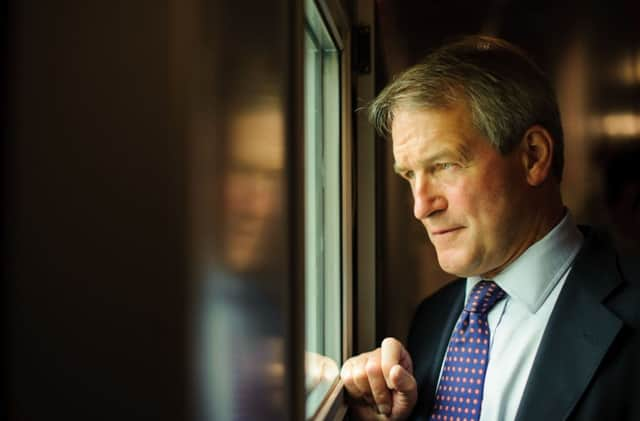EU’s Ciolos defends ‘flexibility’ of new CAP


European farm commissioner Dacian Ciolos said the new policy supported farmers by recognising the diversity across individual nations as well as 28 member states.
But he admitted that there had to be a degree of compromise in trying to create a “common” policy across the EU.
Advertisement
Hide AdAdvertisement
Hide Ad“We have a common policy and a common market and UK farmers benefit from that by having access to half-a-billion consumers,” he told delegates at the Oxford Farming Conference.
“But this common market means accepting some compromise. By having common rules, we have to deal with differences between countries and make that difference a strong point.”
The new deal would encourage competitiveness and enable Europe to win business in China where there was confidence in the safety and quality of our products, Ciolos added.
NFU president Peter Kendall criticised the amount of flexibility between nations, which meant the CAP had stopped being “common”.
Calling on politicians to return to the original aims of the CAP set out 60 years ago, he said social policies should be secondary to ones which increased agricultural productivity and ensured a fair standard of living for the farming community.
“Reform has failed to put the CAP back on track,” he added. “It is out of tune with the massive challenge of global food security.”
Simon Coveney, the Irish agriculture minister and a former European Farm Council leader, said that while the reform was not perfect, it reflected a good balance of demands from 28 different countries.
Dismissing calls for the repatriation of the CAP, Coveney said: “If we want a linkage between food security and climate change policy, you simply can’t do it alone.
Advertisement
Hide AdAdvertisement
Hide Ad“You have to have common standards. Doing your own thing will see things start to crumble.”
Paterson urges EU to embrace GM crops
Europe risks being the museum of world farming unless it embraces genetically modified (GM) crops and other agricultural innovations, UK Secretary of State for the Environment, Food and Rural Affairs, Owen Paterson, warned yesterday.
He said UK farmers needed access to the widest possible range of technologies if they were to take advantage of expanding markets and opportunities.
Speaking at the Oxford Farming Conference, Paterson said technologies such as GM represented some of the biggest opportunities for agriculture.
But he warned that European farmers risked being left behind by policy which prevented them from utilising it.
“There are other tools in the toolbox and GM is not a panacea,” he told delegates. “But the longer that Europe continues to close its doors to GM, the greater the risk that the rest of the world will bypass us altogether.
“Europe risks becoming the museum of world farming as innovative companies make decisions to invest and develop new technologies in other markets.”
Paterson said delays of GM crop approvals in Europe had been politically motivated, rather than based on scientific evidence which had proved that GM food was safe and nutritious.
Advertisement
Hide AdAdvertisement
Hide Ad“When you have 17 million farmers cultivating 170 million hectares, or 12 per cent of the world’s arable land, that goes beyond experimental. It’s established technology delivering safe, palatable food,” he added.
“If we don’t work with those delivering those technologies we are in real danger of being left behind.”
Simon Coveney, Ireland’s agriculture minister and a former EU farm council president, said policies regarding GM technology were determined by the market.
“It’s about getting the balance between the necessary innovations to get higher-value crops while using less, while at the same time addressing consumer concerns,” he told the conference.
“Whether we take the approach of being led by the science of GM, in our own countries it is a matter for individual policy makers to decide.”
But NFU president Peter Kendall claimed it was the involvement of politicians which created problems in allowing agricultural technologies to develop, saying: “We need to make decisions based on science rather than politics.”